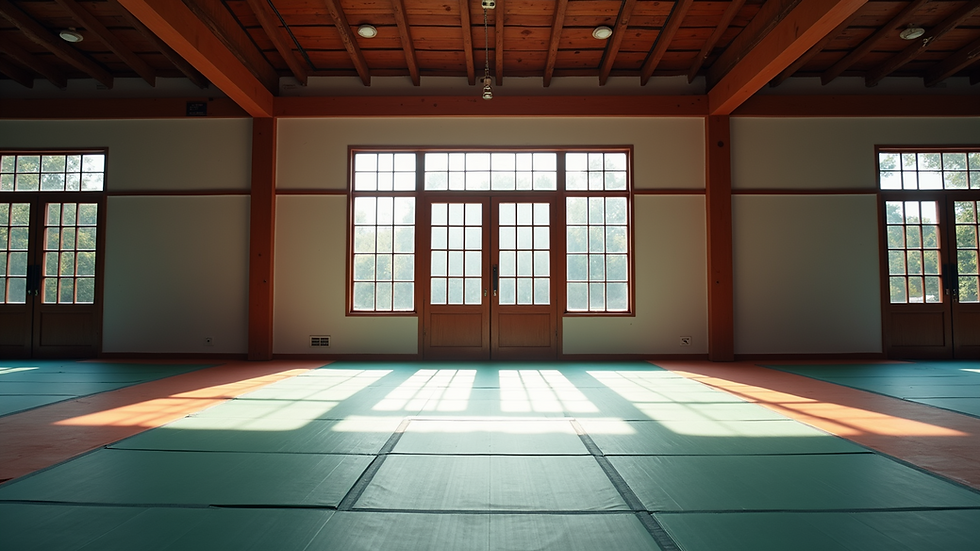Compassion from the 7 Bushido Virtues
- Andy Sensei

- Jun 14, 2021
- 4 min read
Updated: Jul 25, 2021

Compassion (Jin)
Through intense training and hard work, we can shape ourselves to be different and to stand out from the crowd. We can use our status to help our fellow human at every opportunity it arises.
We know that compassion can be defined as the emotion which arises when we are confronted by someone’s suffering and feel motivated to relieve that suffering. Our history on this planet is suffused with suffering. One could say we’re experts at causing suffering to our fellow humans and other creatures. But do we balance the ledger? Do we understand the role we each can play by bringing compassion into our communities?
Compassion is deeply rooted in human nature (Keltner 2004) as a profoundly care taking species it’s hard-wired into our evolutionary existence. Is this because human babies require nurturing to survive, far longer than most other species on the planet?
Research shows us when we feel compassion there is a biological impact to our bodies. Our heart rate slows down, we secrete a bonding hormone oxytocin and regions of our brain linked to empathy and caregiving light up.
One of our forefathers on evolution and the study of human behaviour was Charles Darwin. Himself a compassionate and devoted parent. He and his wife having ten children, two tragically died in infancy and if that wasn’t enough, Annie their ten-year-old was gravely ill with Darwin nursing her until her death. This profound experience caused Darwin to reflect on the impact of suffering. In 1871 he wrote the book The Decent of Man. His personal insights led him to deeply understand the place of suffering for human experience and the place of compassion for human experience. He wrote that ‘Sympathy is our strongest instinct, stronger than self-interest.
Last week I experienced a situation which I’d like to share. My wife and I were collecting additional items for the girl’s school uniform in Lowes. Universally the place to go for pretty much all schools in NSW it seems!
At the counter paying we were behind a guy with intellectual disability. I’d worked out he was trying to make an updated payment on a layby item. The lady behind the counter couldn’t understand him and was asking him to confirm (spell) his address. Higginbotham Road. He knew his address and could say it easily but had some difficulty spelling it. I understood what he was saying, my wife did – why couldn’t the lady behind the counter?
We got served by another attendant and left the store with the guy still struggling to make himself understood behind me. That event stayed with me for the afternoon, and I replayed the situation several times in my head. Why didn’t I speak up on his behalf? I could see the issue and It really tugged at my conscience and yet I didn’t speak up, intervene, or offer any support. That night as I reflected, I realised the issue for me was that I felt embarrassed to speak up. I didn’t want to bring attention to myself and feared I could get myself into a difficult/awkward situation. Fear held me back. I made a commitment that night to never be in that situation again. Having sympathy for someone else’s situation isn’t enough – we must act and in doing so we can demonstrate the virtue of compassion.
When we review the interpretation from the Bushido Virtue as written in the opening paragraph of this article, we surmise that by radical self-discipline and dedication to improvements of our own character we transform to better versions of ourselves and therefore more able to help others in need? This is certainly how I see the explanation. It’s on us to be our best. Only then can we be of service to a greater cause – others.
What deliberate action can we take to be more aware of the virtue of compassion and our role in propagating it within our communities?
1. Compassion is deeply rooted in human nature; it has a biological basis in the brain and body. When we witness someone suffering and have sympathy for their situation, we also understand that to act is how we show compassion.
2. Humans can communicate compassion through facial gesture and touch, and these displays of compassion can serve vital social functions. A small gesture, therefore, can have significant impact on someone’s suffering.
3. When experienced, compassion overwhelms selfish concerns and motivates altruistic behaviour. Humane acts in our communities reverberate and create a sense of wellbeing, love, and kindness.
To demonstrate compassion requires courage. It does require that we have done the work on our own character to shape ourselves, to be confident. As the Bushido virtue states - We can use our status to help our fellow human at every opportunity it arises. It would certainly make for a better community to live in if we all play our part.
Next week the virtue of Honesty & Sincerity and then we conclude the week after with Duty & Loyalty!
To your continued Health, success, and happiness.





Comments